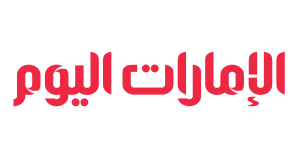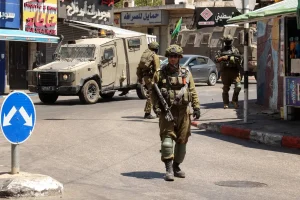La salle d’urgence du camp d’Abu Shouk à El Fasher a annoncé la reprise des combats hier entre l’armée et les forces du “Soutien Rapide” depuis l’axe sud de la ville, le camp ayant subi des bombardements d’artillerie causant des blessures parmi les civils.
Samedi, les patrouilles de l’armée soudanaise ont lancé de lourdes frappes sur les positions et mouvements des forces du “Soutien Rapide” dans l’axe sud d’El Fasher, capitale du Darfour Nord, les forçant à se replier vers le sud. Ceci en réponse à des bombardements d’artillerie intenses de la part de ces dernières sur la ville depuis les côtés sud et nord-est.
Poursuivant sa pression militaire avec des attaques intensifiées sur la ville pour la deuxième semaine consécutive, les forces du “Soutien Rapide” ont continué hier leurs bombardements d’artillerie visant la division de l’armée, les quartiers résidentiels et le camp d’Abu Shouk pour les déplacés.
Selon des sources sur le terrain, l’artillerie de l’armée a répondu par un bombardement violent contre les positions du “Soutien Rapide” autour du siège de la police de réserve centrale, de la prison de Shalla et de l’immeuble Ali Mahmoud. Les avions de guerre de l’armée ont également attaqué les rassemblements de milices autour d’El Fasher.
Des sources informées ont indiqué que des combats et affrontements ont eu lieu hier autour de Qashlaq (casernes) appartenant à la sixième division d’infanterie de l’armée à El Fasher, confirmant que l’armée a déjoué une tentative d’infiltration du “Soutien Rapide” vers le complexe des ministères gouvernementaux.
La coordination des comités de résistance d’El Fasher a annoncé que les patrouilles de l’armée et l’artillerie de la sixième division d’infanterie ont confirmé dans leur défense et repousse des milices hier qu’ils sont un pilier fort et le héros inconnu de cette bataille.
Par ailleurs, des observateurs à l’intérieur d’El Fasher ont décrit la situation humanitaire dans la ville comme se détériorant rapidement à un niveau très grave nécessitant une intervention urgente sans délai.
Les observateurs ont révélé une pénétration sur le terrain par les forces du “Soutien Rapide” dans la partie sud-ouest de la ville, atteignant le quartier Awlad Al-Reef dans le cadre de leurs récentes avancées qui ont commencé dans la zone du marché aux bestiaux et les quartiers du sud d’Al-Thawra, Al-Radeef et Al-Wadi.
Les forces du “Soutien Rapide” ont déclaré qu’elles continuent à progresser dans les quartiers de la ville et ont réussi hier à prendre le contrôle des casernes de Qashlaq appartenant à la sixième division d’infanterie de l’armée d’El Fasher.
Les habitants coincés au milieu des combats à El Fasher font face à des conditions humanitaires difficiles entre faim, choléra et bombardements en raison de l’épuisement des fournitures alimentaires et médicales causé par le siège prolongé, les bombardements et les affrontements continus. La vie des civils à l’intérieur de la ville est en danger, tandis que les forces du “Soutien Rapide” contrôlent toutes les voies d’entrée et de sortie, empêchant l’arrivée de l’aide et des marchandises.
L’analyste en sécurité et politique, l’ancien général des renseignements soudanais Abdulhadi Abdulbasit, a déclaré que la pénétration des milices dans les zones d’Al-Wadi, Tambasi et du registre civil à El Fasher est un indicateur dangereux. Il a noté que cette situation nécessite la déclaration de l’état d’urgence maximale et une mobilisation générale en appelant les retraités, les forces de défense populaire et en mobilisant les armées et les combattants pour lever le siège des villes d’El Obeid, Al Nahud et El Fasher simultanément et se diriger vers le bastion des milices dans la ville d’Al Daein dans l’Est du Darfour pour perturber les rebelles.
Abdulbasit a averti dans un message adressé au président du Conseil souverain et commandant en chef de l’armée, le général Abdel Fattah al-Burhan, qu’El Fasher appelle maintenant à l’aide après avoir enduré plus de deux ans sous siège et pression, tandis que le plan des rebelles est d’épuiser par des attaques continues jour et nuit jusqu’à l’effondrement.
L’analyste a noté que la forte détermination des rebelles à renverser El Fasher n’a pas été rencontrée par une action ou des déclarations équivalentes, mais plutôt que les gens ont regardé et applaudi la résilience du peuple d’El Fasher, en publiant de temps en temps des déclarations qui n’atténuent pas la crise.
Dans son message, l’ancien général des renseignements soudanais Abdulhadi Abdulbasit s’est interrogé : “Qui informera notre direction que la chute d’El Fasher est plus dangereuse et désastreuse que toutes nos batailles précédentes, et que sa chute signifie la chute immédiate d’El Obeid ainsi que Dalang et Kadugli dans le Kordofan Sud, ce qui constitue à son tour une menace majeure et directe pour l’État du Nord, le Nil et Khartoum à nouveau ?”
Il a poursuivi : “Qui dira à notre direction que lever le siège d’El Fasher et d’El Obeid est (un million de fois) plus facile et moins coûteux que de les reprendre après leur chute, surtout si les rebelles s’en contentent et ne cherchent pas à renverser tout notre pays ensuite ?”
Depuis deux semaines, les forces du “Soutien Rapide” lancent des attaques successives sur El Fasher, affirmant avoir pénétré près des bases et quartiers généraux de l’armée, la dernière étant les casernes de Qashlaq de la sixième division de l’armée, qui est la résidence des soldats et officiers.
Dans l’État du Nil Blanc, des sources militaires ont confirmé que les défenses aériennes de l’armée ont intercepté six drones hostiles en route pour attaquer des positions de l’armée à l’intérieur du camp de Talha au nord de la ville d’Al Douiem, les abattant tous sans pertes humaines ni matérielles.
Dans le Kordofan Nord, plus de 10 personnes ont été tuées et plusieurs civils blessés dans le village d’Awlad Al-Sharif suite à une attaque par un drone appartenant aux forces du “Soutien Rapide”.













Recommended for you
طالب الرفاعى يؤرخ لتراث الفن الكويتى فى "دوخى.. تقاسيم الصَبا"
مدينة المعارض تنجز نحو 80% من استعداداتها لانطلاق معرض دمشق الدولي
تقديم طلبات القبول الموحد الثلاثاء و640 طالبا سيتم قبولهم في الطب
البريد المصري: لدينا أكثر من 10 ملايين عميل في حساب التوفير.. ونوفر عوائد يومية وشهرية وسنوية
سمو الشيخ عيسى بن سلمان بن حمد آل خليفة يستقبل سفير الولايات المتحدة الأمريكية لدى مملكة البحرين
الجغبير: القطاع الصناعي يقود النمو الاقتصادي